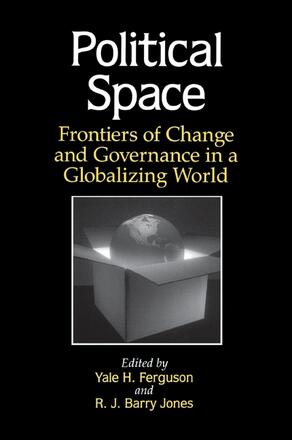
Political Space
Frontiers of Change and Governance in a Globalizing World
Alternative formats available from:
Applies the concept of space to international relations to arrive at novel interpretations.
Description
This collection brings together an unusually distinguished and diverse group of theorists of global politics, political geography, and international political economy who reflect on the concept of political space. Already familiar to political geographers, the concept of political space has lately received increased attention, arising out of the need for new ways of thinking about and describing the actors, structures, and processes that shape politics and patterns of governance in today's complex, post-Cold War world. The essays explore the frontiers of the field of global politics, and each deals imaginatively with some aspect of political space. Although the participants may be loosely classified as realists, neo-realists, constructivists, and postinternationalists, the essays are not fitted to the usual theoretical pigeonholes. What they do share is a continued faith in empirical research, and a collective sense of discovery.
Yale H. Ferguson is Professor of Political Science and Co-Director of the Center for Global Change and Governance at Rutgers University-Newark. He is the author and editor of several books, including, with Richard W. Mansbach, Polities: Authority, Identities, and Change. R. J. Barry Jones is Emeritus Professor of International Relations at the University of Reading. He is the author and editor of several books, including The World Turned Upside Down?: Globalization and the Future of the State.
Reviews
"Calling our state-centered view of the world into question, the contributors focus on—and problematize—change in modes of governance and authority as well as identity and loyalty. The volume offers a series of suggestive and useful new analytical tools, and thus will serve as an inspiration to further research. " — Christer Jönsson, author of Communication in International Bargaining
"This book merges four important contemporary questions: the nature of change, the concept of political space, the nature of globalization, and the problem of local governance. Better still, the volume does so in a manner that makes excellent sense. " — Robert A. Denemark, coeditor of World System History: The Social Science of Long-Term Change